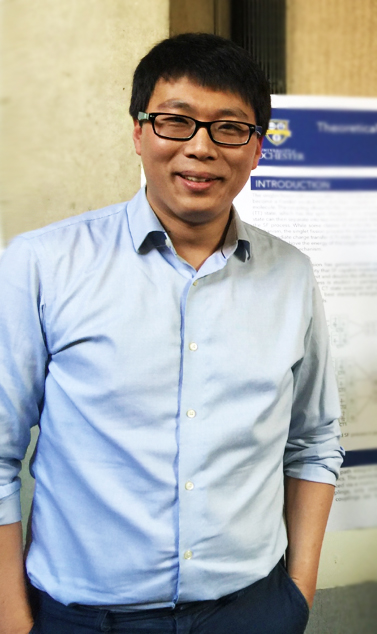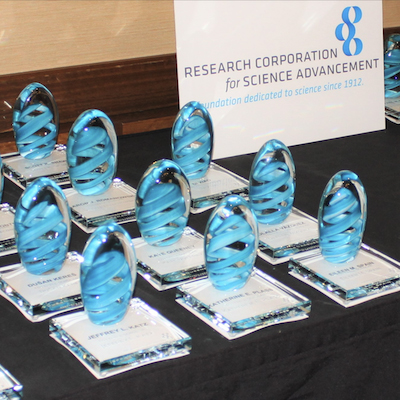News Archive
Frank Huo Named 2020 Cottrell Scholar
 Frank Huo, Assistant Professor of Chemistry, has been named a 2020 Cottrell Scholar by the Research Corporation for Science Advancement (RCSA), America's first foundation dedicated wholly to science. Huo is one of twenty-five 25 early-career scholars in chemistry, physics and astronomy who were honored. Each awardee receives $100,000. New and established Cottrell Scholars also meet each year to share insights and inspiration at the Cottrell Scholar Conference. This year’s event, to be held July 8-10 in Tucson, Ariz., will focus on cultivating an entrepreneurial mindset through research and educational activities.
Frank Huo, Assistant Professor of Chemistry, has been named a 2020 Cottrell Scholar by the Research Corporation for Science Advancement (RCSA), America's first foundation dedicated wholly to science. Huo is one of twenty-five 25 early-career scholars in chemistry, physics and astronomy who were honored. Each awardee receives $100,000. New and established Cottrell Scholars also meet each year to share insights and inspiration at the Cottrell Scholar Conference. This year’s event, to be held July 8-10 in Tucson, Ariz., will focus on cultivating an entrepreneurial mindset through research and educational activities.
Recipients, identified as leaders in integrating science teaching and research at a top U.S. research university, a degree-granting research institute, or a primarily undergraduate institution, are chosen through a rigorous peer-review process. “The quality of the applicants and the many terrific proposals we receive can make it difficult to choose,” said RCSA Senior Program Director Silvia Ronco. “We look for innovative ideas that are likely to make a positive impact on science and on the education of tomorrow’s scientists.” Once designated a Cottrell Scholar, several additional levels of competitive funding become available to develop initiatives to enhance science education or promote career growth. Huo plans to use part of this award to theoretically investigate new chemical reactivities enabled by coupling molecular systems to the quantized radiation field inside an optical cavity. Coupling molecules to an optical cavity creates a set of new photon-matter hybrid excitations, so-called polaritons. Through this light-matter hybridization process, the reactivities of molecules can be profoundly changed, thus opens up new possibilities for unique chemical transformations.
Once designated a Cottrell Scholar, several additional levels of competitive funding become available to develop initiatives to enhance science education or promote career growth. Huo plans to use part of this award to theoretically investigate new chemical reactivities enabled by coupling molecular systems to the quantized radiation field inside an optical cavity. Coupling molecules to an optical cavity creates a set of new photon-matter hybrid excitations, so-called polaritons. Through this light-matter hybridization process, the reactivities of molecules can be profoundly changed, thus opens up new possibilities for unique chemical transformations.
Huo and his group will theoretically investigate the quantum dynamics of such molecule-cavity hybrid systems, unravel the fundamental limit and basic principles in polariton photochemistry, and discover new chemical reactivities enabled by cavity quantum electrodynamics processes. Their theoretical investigations are supported by experimental collaborations with Todd Krauss and Nick Vamivakas. The resulting knowledge from these projects will likely inspire new principles of chemical reactions that take advantage of intrinsic quantum light-matter interactions and facilitate the quantum leap of chemistry. They envision their investigations will help to provide a fundamental understanding of polariton mediated reactivities and develop new theories that facilitate the merger of quantum optics and photochemistry.
During the funding period, Huo also plans to develop a set of integrated educational components to bridge the knowledge gap between upper-level physical chemistry courses and the fundamental principles of theoretical chemistry. These modules will prepare the students with a research-level knowledge and skills in computational chemistry and encourage them to actively use theoretical and computational approaches to solve scientific problems.
Congratulations, Professor Huo!